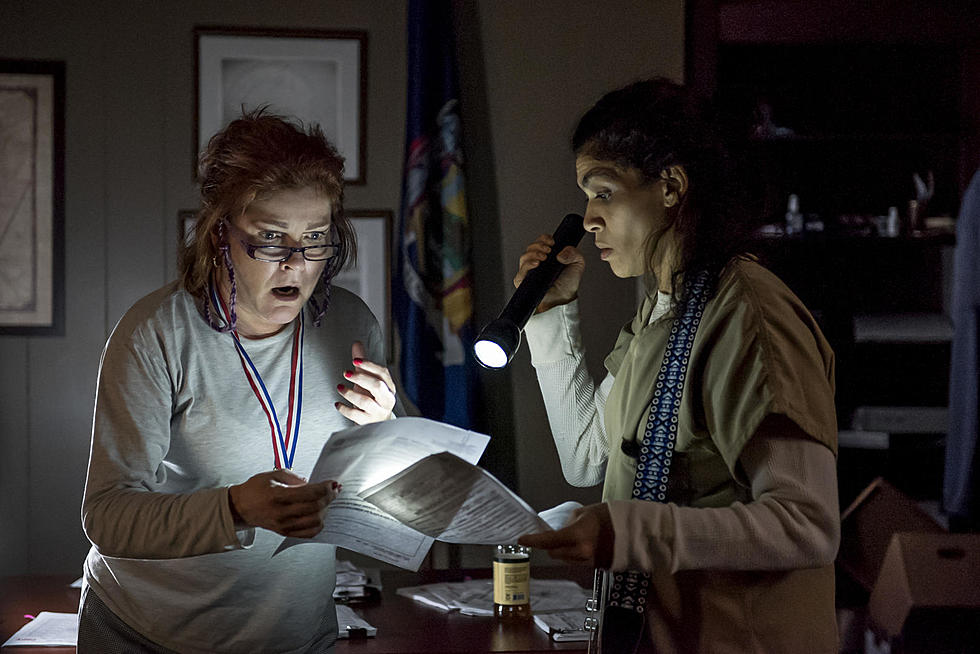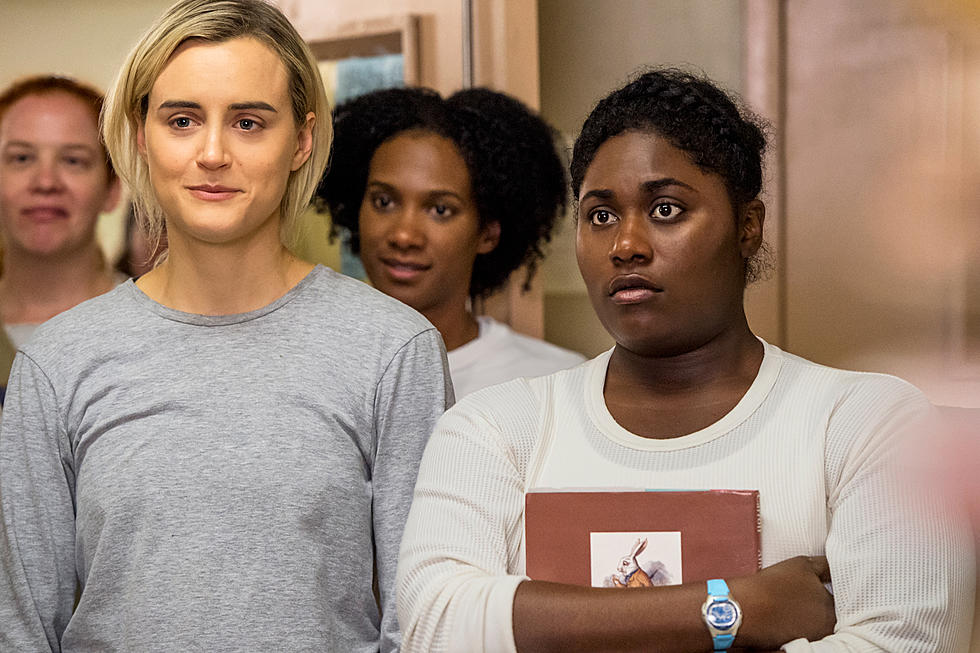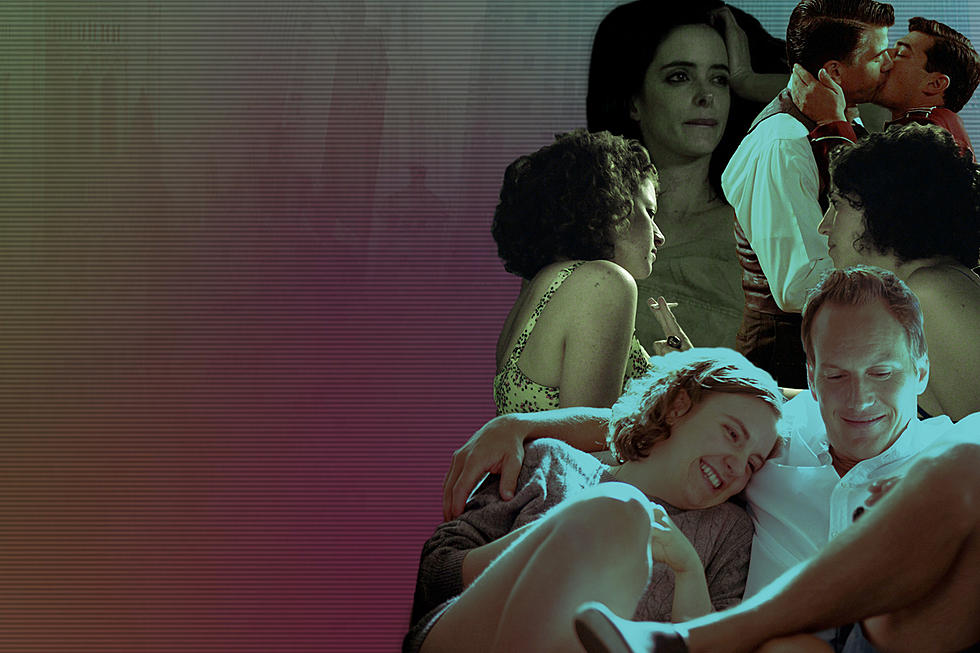
Why the ‘Orange Is the New Black’ Season 2 Finale Was Disappointing
Over the course of two seasons, 'Orange Is the New Black' has guided us through the lives of women whose stories are not often told, giving us a vibrant, complex look at vibrant, complex people of all colors, shapes and sizes. Creator Jenji Kohan has blended warmth and humor with drama to tell their stories, and while the second season was in some ways better than the first, the finale was ultimately a letdown.
In the first season, 'Orange Is the New Black' used Piper Chapman as the viewer proxy, a sly bit of misdirection on Kohan's part, as she's first introduced as the main character, but it becomes explicit over the course of the first 13 episodes that this isn't just Piper's story -- Kohan is interested in giving equal screentime to most of the inmates at Litchfield, and as such, there's no singular villain. Everyone is an antagonist to Piper from the outset until she -- and we -- get to know and appreciate them as human beings. The show cleverly toyed with our perception and our tendencies to form snap judgments, and has continued to do so well into its second season. We can't presume to know anything about these women, particularly Lorna Morello, whose backstory was revealed in season 2.
As it turns out, there's a reason why Morello's fiance Christopher has never come to visit: after a meet cute and only one date, Christopher decided not to see her again, and Morello proceeded to stalk him and attach a bomb to his girlfriend's car. This is why she's in prison: not for scamming people on eBay as was insinuated in season 1, but for stalking and attempted murder. Morello's sad delusions came to a head when she ran off with the prison van and broke into Christopher's house in one of the series' most harrowing scenes. Her willful refusal to accept that this man doesn't love her and that he's marrying someone else doesn't make her seem insane -- it makes her that much more of an empathetic and heartbreaking character.
Season 2 beautifully expands on even more characters: Miss Rosa was a joyriding bank robber, Sister Ingalls was a narcissistic wannabe celebrity, and Army brat Poussey tragically fell in love with a the daughter of a high-ranking military official in Germany. These women are not who we think they are, not just because prison changes people, but because we can't presume to know anything about who they are or where they come from based on how they choose to present themselves to us in these little windows of time.
This season also introduced us to Lorraine Toussaint's Vee, Taystee's foster mother, a Queen Bee drug dealer, and a Litchfield veteran who wants to see things go back to the way they were back in the day, when black women proudly and strongly ruled their own roost. Vee is the fabled scorpion on the back of the frog personified. She is exceedingly dangerous, isolating Suzanne (aka Crazy Eyes) and manipulating her into behaving as a pathetic guard dog, and turning Taystee against Poussey -- the only person who seems to see through her machinations.
It's unclear whether the show actually needs a singular villain, an idea that seems reductive in the hazardous world of Litchfield, a place where excrement flows up out of the showers because the assistant warden is too busy trying to hide the money she's embezzled to bother with fixing it or caring about the welfare of these women. Then there's the exhaustive and sometimes senseless oppression from the staff, and enough in-fighting between inmates on a daily basis to keep things lively. Still, Vee is an interesting character and her complexities fit right in with the world of 'OITNB' and Litchfield, though at times her villainy borders on excessive and absurd. The show itself seems aware of this when Red attempts to kill Vee during a tropical storm, and the two fall back on the concrete, exasperated and acknowledging how ridiculous it is for them to be trying to kill each other over a hidden smuggling route, in a place where they have enough misery to deal with already.
This moment of self-awareness comes late in the season, as if the writers acknowledge they've made some mistakes and they're hinting that perhaps they've painted themselves into a corner with Vee. We should've seen this ending coming, maybe, given that the show sometimes has a tendency to embrace humor when we wish it would lean into the drama, or that it gets a little too heavy when it should feel okay with making us laugh. It has a tendency to get a little tonally mixed up, which is why the final moments of the finale are so disappointing.
Aside from Piper trying to avoid a transfer (and we know she will because this series has proven that Piper isn't the main character, and they're not leaving Litchfield behind), the narrative throughlines this season have been Vee's villainy and Miss Rosa's terminal cancer, and the final episode brings these threads together in a way that is wholly unsatisfying. Morello gives Rosa the keys to the van and tells her to run free, to spend her final days on Earth somewhere outside of the prison walls, and since everyone is distracted by Vee's simultaneous escape after she assaulted Red, Rosa is able to abscond with the van rather easily. Meanwhile, as Vee emerges from the sewers and out of the woods, she locks eyes with Rosa, who swerves the van and hits the "rude" woman, presumably killing her.
What makes this ending such a letdown is that we've spent 13 episodes getting to know the depths of Vee's cruelty. We want justice served. Litchfield is not a place where justice lives, and to expect such seems a bit unreasonable, but to have dedicated so much of the finale to an investigation into Red's assault, and to having Healy exonerate Suzanne so that the right woman could be punished for the crime, and then to have Vee just run out of the woods and get hit by a van driven by a terminal cancer patient who also just escaped from prison -- it's all a bit absurd, isn't it? It's actually quite comical. And that's what makes it disappointing: in this final moment, 'OITNB' is firmly establishing itself as a comedy, and one that isn't as grounded in reality as we thought.
We know the show was inspired by a true story, and that the horrible conditions at Litchfield are reflective of the conditions many inmates endure in prison, and we also know that 'OITNB' is a fictional version of all of this, which is why they can contrive a plot to get Alex Vause back to Litchfield at the end of season 2. We knew that was coming, as improbable as it seems, but it's a television series, and you need to have all your characters interacting in one place as much as possible. But there's a line between heightened reality and the absurdly unrealistic, and they crossed that line when Miss Rosa hit Vee with that van. The moment is laughable, but it's also kind of a slap to the face. Miss Rosa running off on a final joyride in the prison van as her face CG-morphs into her younger self is a little silly, but the sentiment is in the right place. Miss Rosa murdering an escaped Vee with said van after we spent 13 episodes watching this woman's reign of terror on the characters we've come to know and love is dismissive and reductive, and a little insulting to the audience.
There's no real justice at Litchfield. We know that. But the finale spends so much time giving us false hope, only to wipe it off the table and bring Vee's story to an abrupt and silly conclusion. Maybe the finale is built to make us feel like the women of Litchfield: to emotionally exhaust us, vacillating between moments of despair and hope, before telling us it doesn't really matter what we want because we're not in charge here.
More From ScreenCrush









